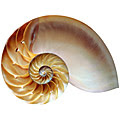... AND NOW THEY KNOW THAT AUTISM IS LINKED WITH RESPONCES TO THE ENVIRONMENT AND LEARNING!
The question of course is, do they know what that means or will they make again the wrong assumptions that support their wrong claims and offer again the wrong solutions? One thing is sure, if all the wrongs offer them riches, I already know what the outcome will be...
Autism Genes That Control Early Learning
New study confirms importance of early behavioral intervention in treating the disorder (how wish we could find a cure for the Science Disorder at hand...)
By Nikhil Swaminathan
A new genetic analysis of large, inbred Middle Eastern families found that genes linked to a heightened risk of autism are crucial to a child's ability to learn.
A group of scientists, led by a team at Children's Hospital Boston, has pinpointed six new genes that may contribute to autism, a disorder characterized by asocial behavior, difficulty communicating and repetitive actions that affects an estimated one in 150 children born in the U.S. each year.
They report in Science that all of the linked genes are involved in forming new and stronger connections, called synapses, between nerve cells in the brain, which is the biological basis of learning and memory formation."We're showing, on the one hand, that autism seems to have a large genetic component," says study co-author Christopher Walsh, chief of genetics at Children's Hospital. "But, the genes that are involved are actually those that are involved in responding to the environment and learning."
The findings, Walsh says, reinforces the importance of early diagnosis of autism and intervention, particularly behavioral therapy and learning in enriched environments through repeated activities. Performing these sorts of tasks may help strengthen cellular connections, compensating for the malfunctioning genes.The researchers studied 88 families in which one or more children had been diagnosed with autism, and the parents of each autistic child were cousins.
Marrying second and third—and even first cousins—is not uncommon in the Middle East, and by studying such families scientists were able to track recessive genetic traits (caused by mutations that only affect individuals with two copies of the flawed genes). Such traits occur far more frequently in inbred families than in others.The team found a total of six mutations affecting genes that had previously not been linked to autism.
The mutations came in the form of deletions, where part or all of both copies of the genes were missing in a child with the disorder. All of the genes are known to be involved in parts of the same process: creating and strengthening synapses.Normally, when nerve cells (neurons) activate in response to an environmental factor (such as processing a new face or a new sound), synapses between two active cells change to provide stronger connections so the cells can pass on information more efficiently.
As the brain develops, new connections are continuously formed among nerve cells, reinforced and, in some instances, broken as the brain starts to mature and divvy up its different functions to specific groups of neurons.
According to the findings, "All of the relevant mutations could disrupt the formation of vital neural connections during a critical period when experience is shaping the brain," says Thomas Insel, director of the National Institute for Mental Health (NIMH) in Bethesda, Md. To wit, most children are diagnosed with autism between the ages of one and three years of age.Walsh says the team believes these deletions—which in most cases found here only remove some, but not all, of the DNA that makes up a gene—may mean that the genes can regain some of their normal function.
In fact, some of these genes may just be switched off. "This presents the possibility that in some kids we could get the gene going again without necessarily having to put it back in the brain," he says.Jim Sutcliffe, a molecular physiologist at Vanderbilt University in Nashville, Tenn., in a Science editorial notes that the majority of autism research is geared toward prenatal development, even though the brain continues to develop well after a child is born. "Experience and environmental input play an important role in subsequent development," he says.
He calls the notion that learning in early life is disrupted by these autism genes "an intriguing proposal," but says that further research is needed to validate it.
Dan Geschwind, a neurologist at the University of California, Los Angeles, says that to test the hypothesis that autism genes affect synaptic strength, it would be important to examine the 20 to 30 other genes that have been implicated in autism and see which ones also play a role in strengthening neuronal connections. "If its a significant proportion," he says, "that would provide support for the hypothesis being put forward."
Walsh notes that many children diagnosed with autism tend to show vast improvement when they are placed in environments that allow them to practice learning repetitively. He says that these activities essentially train the neurons to make up for their lost function."Our work reinforces the importance of early intervention and behavioral therapy," he says. "The more we understand about genetics the more we understand how important the environment is."
Gee! Not much hope here either. The ISS (Idiotic Scientist Syndrome) has strike yet again!!!
http://www.sciam.com/article.cfm?id=autism-genes-that-control
Abonneren op:
Reacties posten (Atom)



Geen opmerkingen:
Een reactie posten